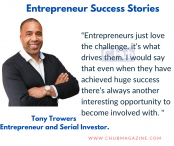
- Tony Trowers is an entrepreneur and a serial investor despite having started off as a humble plasterer with a burning ambition. Trowers is now a versatile businessman with a vast interest in different sectors as well as places.
- Having achieved success in property development, and with a lot of hard work over 35 years has now established a multi-award-winning group of companies within the specialist trades & construction, property acquisition & management, sales and lettings agencies and financial services sectors.
“Although Stoke on Trent is centric to my operations, and I have been dubbed Mr Staffordshire, I’ve worked throughout the UK and have business interests in the United Arab Emirates, Qatar and the Middle East.”
“I was born into a working-class family with no one to educate me in business but over the years I have developed the skills needed to be a good negotiator, strategic planner, visionary and financier to create an award-winning business and extensive property portfolio. I hope however that I have never lost touch with my roots, respect for others or the humility that is naturally instilled in me.”
- Trowers’ journey started in 1983 when he founded Art Plastering Systems and because of what he calls his “own perfectionism” the company became known for its quality workmanship and professionalism and has been recognised nationally within the housing building sector as the best in class. And over the years has built an extensive property portfolio.
- In the 2000s, Tony founded the Pillar Box Group of companies which offers management and financial services to house buyers, sellers & developers and letting services to landlords and tenants within both the residential and commercial sectors.
- And in the last four years, he has gone on to develop his own retail nirvana in North Staffordshire, investing in commercial property and also developing one of the best beauty destinations in the north of England known as 81 Rose Garden which he plans “to roll out as a brand”.
- In this most extensive success story interview with C. Hub Magazine’s Chief editor, Faustina Anyanwu, Tony takes us through his life journey, from his teenage years to how he started in business, sharing his top secrets on his sustained success over three decades doing business in various sectors.
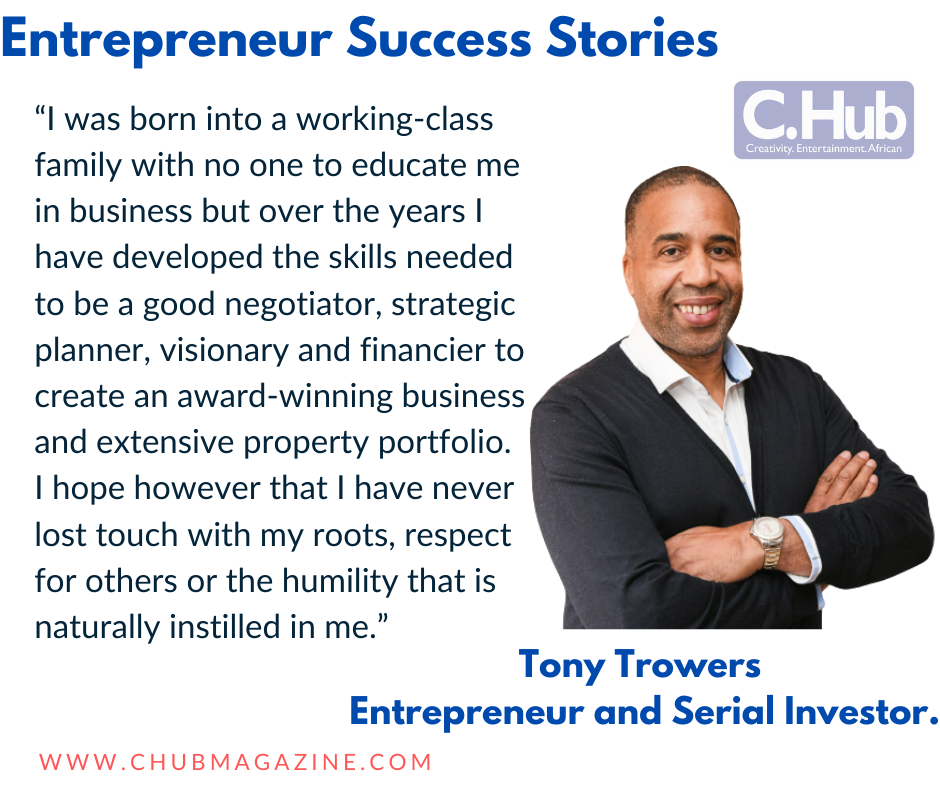
What did you do before you started your business?
Back in the 1980s and early 90s, the mines and the pits were the main industry in Staffordshire and all my friends were either working down the pits or in a potbank (pottery factory).
When I left Biddulph Grammar school I was lucky enough to have choices. I was quite a talented musician who could play trumpet, the flat bass and keyboard and was privileged to have been taught by a famous trombonist Tom Barlow, who has since sadly passed away.
I was passionate about music and particularly the trumpet. I would practise for two hours to three hours every single day. I was selected to play in the Staffordshire Jazz and Brass Band. We performed all over the UK, and abroad, including in front of 4000 people at The Royal Albert Hall in front of HRH the Queen. I was only 14 years old at the time and this remains one of my proudest memories. Not bad, for a boy born on the wrong side of the tracks!
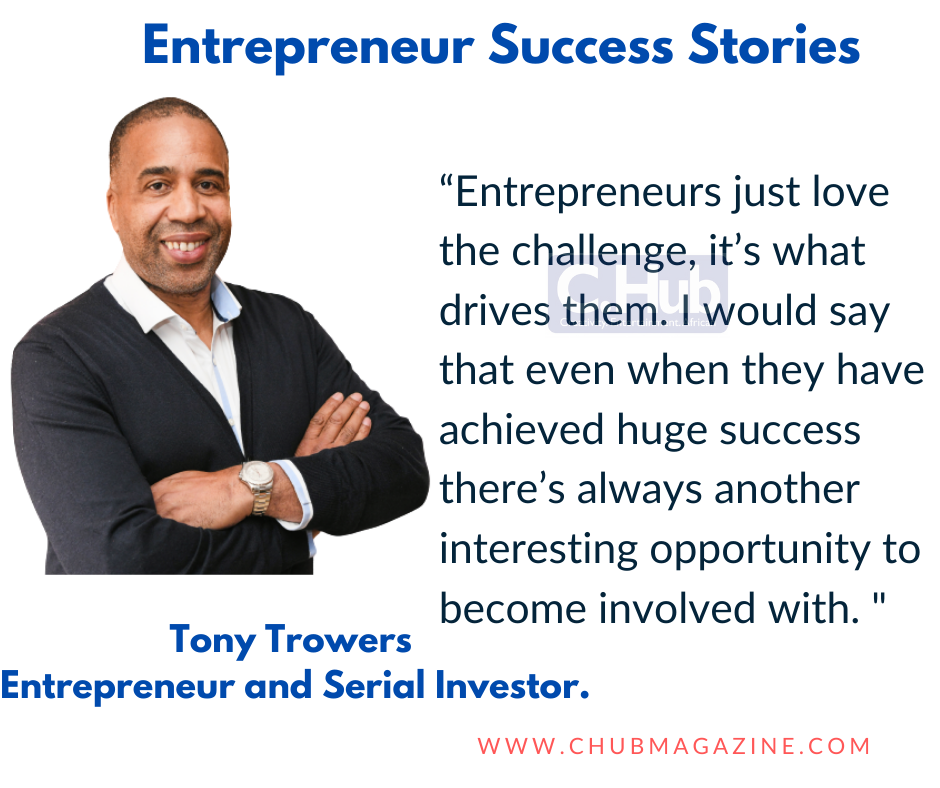
How did you manage to get into the property business having turned down such an opportunity to become a music star?
When I look back I think I was always a little different to my school mates – many just accepted that a life in the pits or down the mines was a foregone conclusion but I wanted more and was prepared to reach for it.
I was constantly weighing up the opportunities that a career in music might afford me. I received the highest examination mark in the Midlands and won a scholarship to the Royal College of Music in Manchester but with a heavy heart I turned it down. Unless you were a singer, or owned the rights to your own music, a career as a musician was not going to support me. The truth is, and it’s largely the same today, that as a session musician, however talented, you can have a great life, but you’re not going to get wealthy out of it.
Somehow, I ended up plastering. My granddad was a plasterer, I helped him at weekends occasionally until he passed away.
The quality of my work was better than anybody else’s, it was the perfectionist in me that meant that my work had to be better than everybody else’s. I also had to be quicker than anybody else.
I did everything I could to stand out within my field, to make sure that I got acknowledged. I used to say: “I don’t need to talk, let the job do the talking”. And my commitment to workmanship did do the talking, it was noticed by the directors of the company I was working for and the property owners themselves and it led to more work.
I didn’t drink when I was younger, I didn’t go to the pub like most of the lads, for me it was all about work at that stage.
This is how I see it, while you’ve got your health and strength, you have the energy to do well in your chosen field. So, if you start a business young, channel that energy and commitment into your business for the first 20-30 years when your mind and body is at its best.
Why Did You Choose To Start Your Own Business?
I had learnt my trade, had a burning ambition to succeed and my work was winning plaudits so it was natural to set up my own business. Some people prefer the security of employment, others like me, don’t want to work for anyone else.
Starting A New Business Is Never A Smooth One. How Did Family And Friends React When You Decided To Go It On Your Own?
By 1983, I decided that I wanted to be my own boss. My friends said I’d fail, but that gave me even more determination to do well. They couldn’t see that being a plasterer could lead anywhere but I was convinced that with my skills and work ethic I had the potential to build a good business.
It’s funny, even though I have long since been involved in residential and commercial development, property lettings and related financial services, many people in Staffs still see me as a plasterer rather than an entrepreneur. They often say “how did you manage to do that?” I might have finally garnered a little respect when the late Lawrie Barratt or Sir Lawrence Barratt of Barratt Homes presented with one of my first NHBC awards. It was one of my proudest moments.
How Did You Navigate Through The Early Difficulties Of Starting A Business?
The truth is, I founded my business on sheer hard work, always saving and investing back into my business enterprises and as a result, I have been able to amass a substantial portfolio of properties, many of which I paid cash for. It was the capital growth of those properties that turned me into a millionaire at the age of 32.
What was the hardest part of setting up your businesses?
There are numerous challenges when you’re trying to build a business. The first rule for me (and remains true today) was to make sure my workers were paid every week and there were some weeks when I didn’t pay myself. I couldn’t because I didn’t have sufficient money in the business at that particular time. But after a couple of years of trading, the business grew, our margins improved and I had a healthy bank balance. At that point I started to invest in property and that gave me even greater and greater financial resilience.
Even though I was liquid after a few years I had to learn about accounts and managing a growing business. It was important to show my employees how much I valued them; it was much more than ensuring that my site managers paid my day workers on time, I believed, and still do, in sending them all gifts at Christmas – Marks & Spencer hampers were particularly popular -. I’d do the same right up to directorship level. I have learned it’s important to value people who work hard for you and are loyal to your business.
I guess the next thing is knowing when to take a risk. I believe you can take a calculated risk once you secure your foundation, as I did with my plastering and property businesses, that’s your marker to take calculated risks at the right time to generate growth.
Most businesses need a line of credit at some point but particularly start ups whether it’s a bank, or your own money, without one you’re not doing any business. You’re likely to see a unique opportunity that’s going to pass you by if you don’t grab it. And if you’re creative and you’ve got a vision then the risk factor is low, because you’ve got that solid foundation in place. This is where a lot of people can make mistakes, trying to grow a business too quickly, over trading, and taking too much risk. If it goes wrong, it’s horrible and sometimes the business can’t recover. I’m a ‘middle risk taker’, I’ve always made sure that I’ve got some resilience somewhere and that solid foundation is in place as a Plan B in case things don’t work out.
Being successful has a whole host of challenges too and being a black person added to that. There were loads of barriers that I had to get through to be acknowledged. I had to let the job do the talking. They didn’t judge me, they judged the job, but unfortunately, some people judge the person first, before they judge the job. I’m proud to have managed to reverse that way of thinking and now I’ve got a box at Stoke City Football Club I feel like I am on a level playing field! The other company directors there were delighted for me, knowing that I wasn’t born with a silver spoon in my mouth. Success brings lots of positive things but it can be a burden if you don’t know how to manage it well. I’ve seen some people change completely, but I will never change from the person that I was all those years ago.
What 3 things have you learnt from being an entrepreneur?
Patience -passion-belief and sheer determination. Never give up even when it doesn’t go well. Only your mental grit will guide you to success.
I also think it’s important to create strong relationships and organise what I call a ‘board of governors’ – a good lawyer, bank manager, accountant and advanced financial advisor. (Sorry, that’s more than 3 things)!
How Do You Balance Your Life As A Successful Entrepreneur?
I’ve got construction directors and surveyors, financial advisors and all sorts of other professionals delivering the work so that my time now is spent developing other businesses that I’m involved with. I still work long hours, but I know how to switch off and make time to play golf, go to the races or visit Ronnie Scotts. Because much of what I am involved with is done at a strategic level it still excites and energises me.
Do you think there is a point in an entrepreneur’s life when they think they have “made it?” And if so, what is that point?
Entrepreneurs just love the challenge, it’s what drives them. I would say that even when they have achieved huge success there’s always another interesting opportunity to become involved with. Others of course become philanthropists and set up foundations for the greater good and I applaud them. What is the point unless we all try to make positive change?
How did you treat yourself in celebration of some early success?
I treated myself to a brand new 911 Porsche, in 1999. I paid £89,000 for that car and I bought it outright. I made the purchase after securing and turning thirteen properties in a liquidation sale.
I heard about the properties and did a drive-by. As I was in a cash position I told the agent that I’d buy them all without actually looking at them however he insisted that I did as there was enormous interest in them and each viewer was adding more to their value by making higher offers. So I thought on my feet, there were thirteen properties – including a pub, by the way, I thought: “Why would the agent want to deal with thirteen individuals that are going to mess him about?” I said this to him: “Listen, I will give you the asking price for them all, I will complete in seven days, I’ll give you the proof of funds and get my lawyers in touch immediately, so you can get the whole deal done with no headache.” I won the deal and the Porsche was my reward!
Interestingly, one of the properties was near Alton Towers Theme Park, it was an old Post Office. It stood me at only £20,000. I simply cut the grass and cleaned the windows and put it back on the market selling it for £100,000! It’s this that has been one of the mainstays of the growth of my business, finding and executing those sweet deals. Somebody once said: “Don’t sit down and wait for the opportunities to come. Stand up and make them happen.”
What are the downs ( regrets/mistakes) you’ve encountered and how have you navigated through them.
Perhaps being a little selfish along the way – missing out on family holidays and leisure time with family and friends.
I should have borrowed more cash when it was offered to me! However I am old school. I self financed the growth of my business as I was focussed on building a solid foundation for it. Maybe I was too risk averse.
I would have really benefited from a mentor in the early days although I was inspired by a businessman who gave me a chance and became a very close friend.
What one thing would you tell anyone going into business or is struggling with their business?
My advice for anybody setting up in business is to find a skill that you know well and truly understand. You then can research the market, check out your competitors and develop your business plan. It’s always a good start to test the water and if you get a good response you then can establish your market.
The key is to set up a business structure ….WEBSITE-BUSINESS BANK ACCOUNT-ACCOUNTANT-BANK MANAGER -SOLICITOR.
For Struggling businesses – You need to understand cash flow and management as well as market conditions.
In challenging times, stress test the resilience of your business and if necessary ‘cut back the tree’ to give it a chance to regain growth.
It may be that you have to cut your overheads by reducing staff if you don’t have sufficient business or request extended payment terms.
The key is if you are struggling in your business, talk to everyone you may affect financially to agree to a more favourable deal where possible.
The one thing the pandemic has taught us is the need to be agile and adapt, or pivot to new market conditions.
And what’s next For Tony?
Property deals, expanding Pillar Box which offers financial services related to property as well as property management and lettings. Amongst other things, I am currently focused on developing our 81 Rose Garden brand (a luxury Beauty, Nail & Hair Salon based in Newcastle Under Lyme, Stoke on Trent). I am expanding the salon to include an aesthetics clinic and restaurant and if that’s not enough, I am already planning the second salon!
Over the years, Tony has won the following awards:
NEW SKILLS ACADEMY – Estate Agency Diploma Course – 2017
NHBC – Pride in the Job Awards – 2013
NHBC – Pride in the Job Awards – 2018 (x 3)
NHBC – Housing Site Management Awards – 1993
NHBC – Housing Site Management Awards – 1994
NHBC – Housing Site Management Awards – 1995 (x 3)
NHBC – Housing Site Management Awards – 1996 (x 2)
NHBC – Housing Site Management Awards – 1997
NHBC – Housing Site Management Awards – 1998
NHBC – Housing Site Supervision Awards – 1993 (x 3)
NHBC – Housing Site Manager Awards – 1994
LABC – Residential New Build Award – 2007
STAFFORDSHIRE – Built in Quality Award – 2007









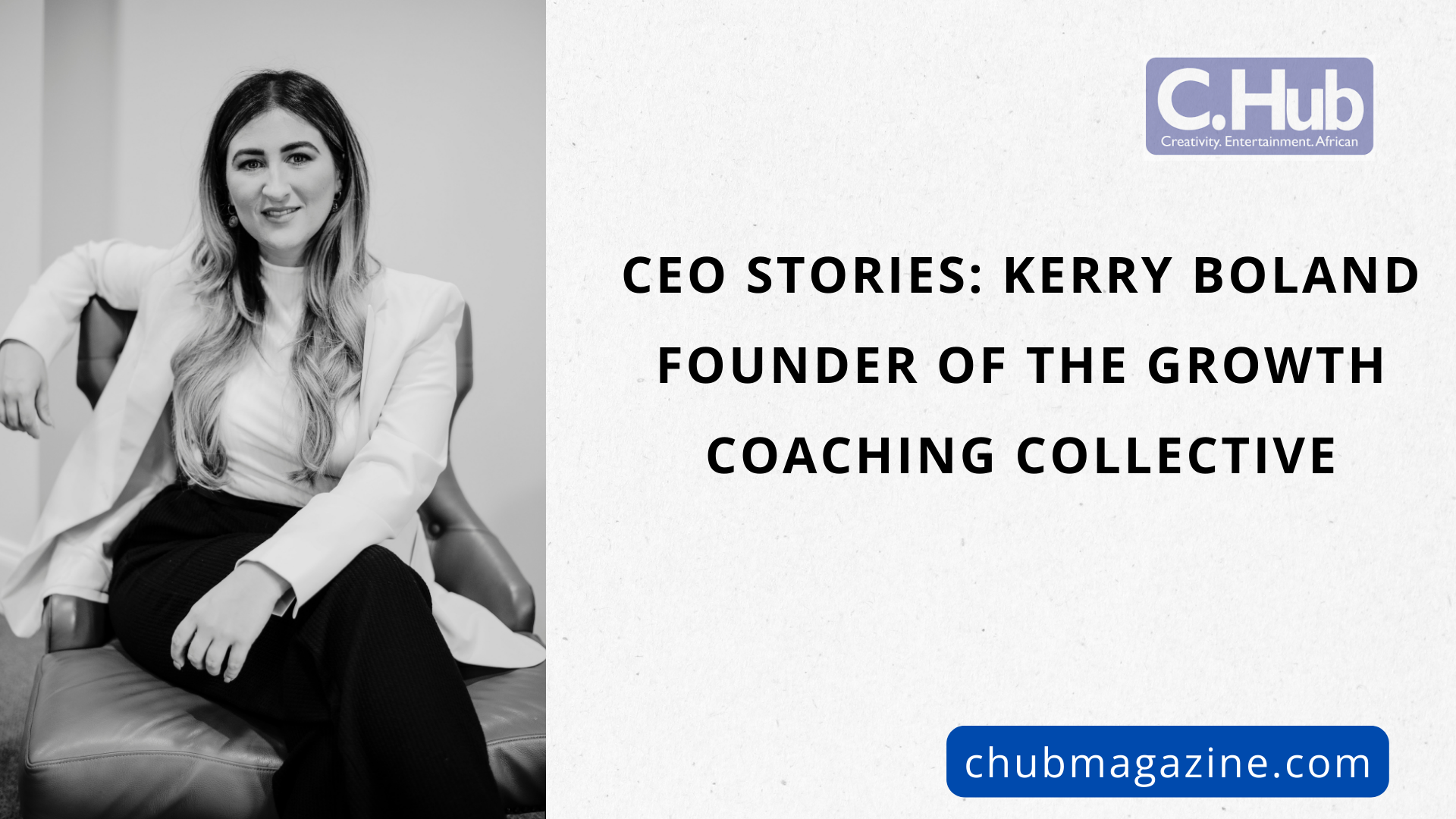

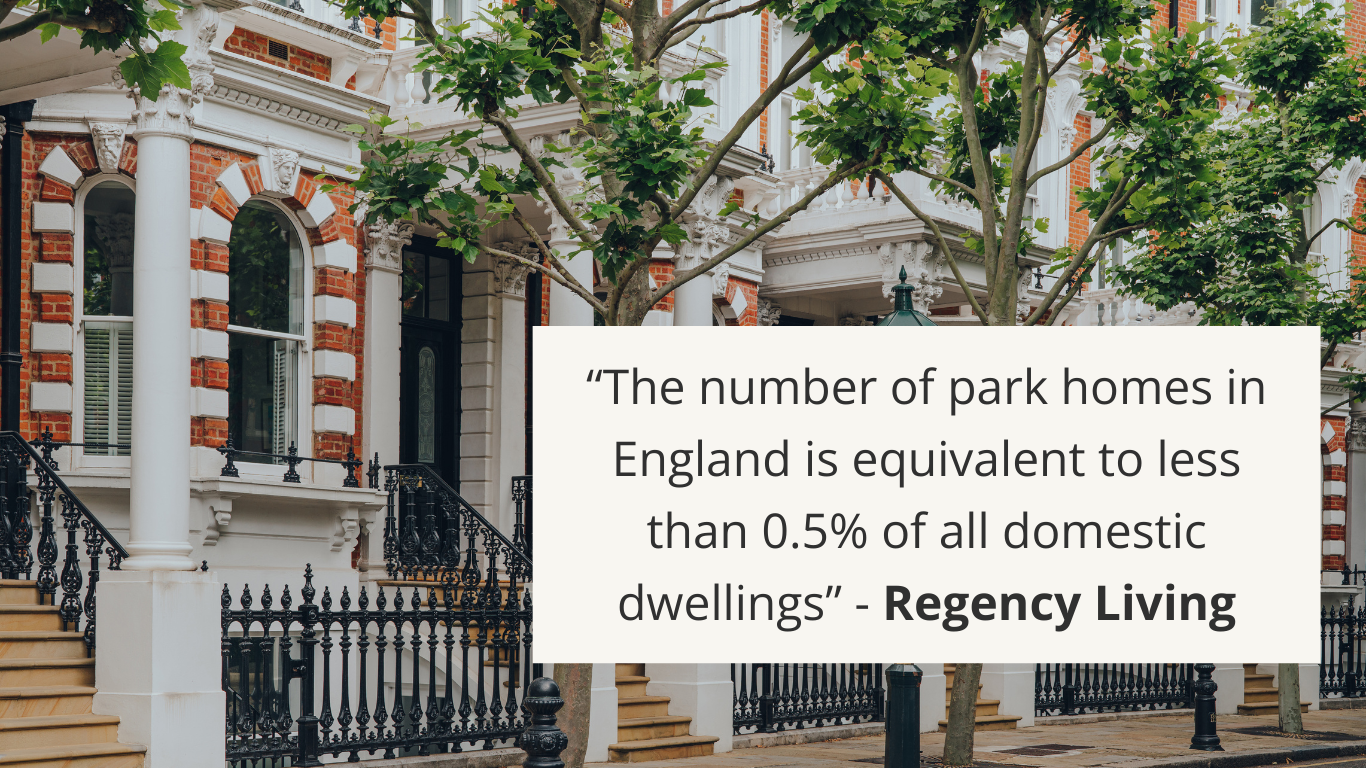

Comment